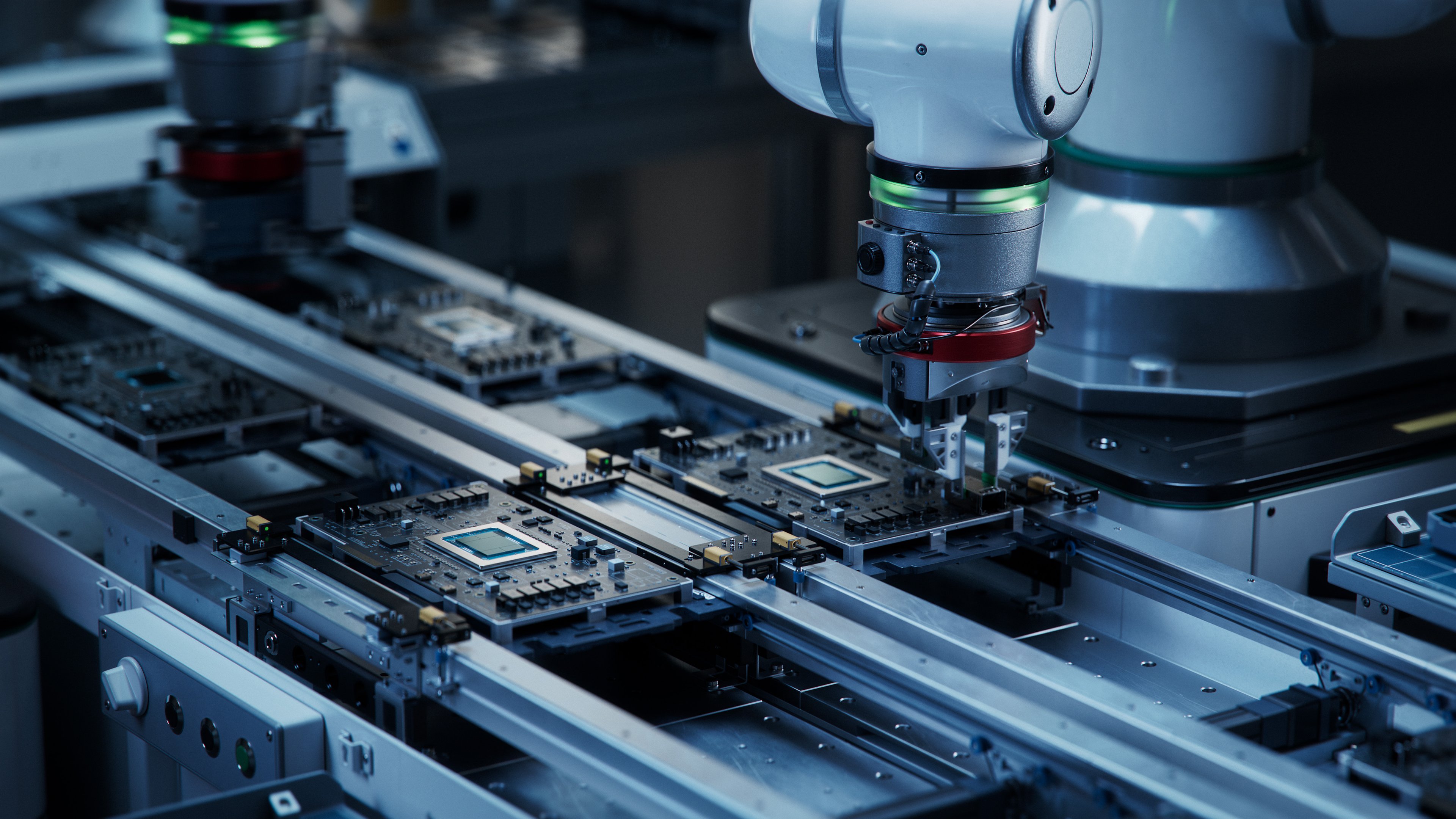Broadcom (AVGO 0.06%) has a long track record of success in the semiconductor and electronics industries. It's quickly becoming a leading supplier of artificial intelligence (AI) hardware for the data center, which includes custom chips and networking equipment.
Broadcom's soaring AI revenue is a key reason its stock has tripled in the last two years, catapulting the company to a $1 trillion market capitalization. It's one of only nine American companies in the ultra-exclusive trillion-dollar club, and its enormous opportunity in the AI space could drive further upside to its valuation from here.
With that said, Broadcom stock is quite expensive right now by two widely used metrics, so is it still a buy?

Image source: Getty Images.
Broadcom is a unique supplier of AI hardware
Since the 1960s, Broadcom has developed components for a range of computing applications, from optical mouse sensors to Wi-Fi chips for smartphones. But the company transformed in 2016 when it merged with another semiconductor company called Avago Technologies. Since then, the new-look Broadcom has spent nearly $100 billion to acquire CA Technologies, cybersecurity vendor Symantec, and cloud software provider VMware.
But the AI revolution has turned investors' attention back to Broadcom's hardware business. The company is helping a handful of hyperscale customers (like Alphabet) design and manufacture their own data center chips called AI accelerators, which can be customized to suit their specific needs. This reduces their reliance on major AI chip suppliers like Nvidia, which currently has a chokehold on the market.
Broadcom says at least three of its hyperscale customers are planning to deploy 1 million AI accelerators each in 2027, which translates into a serviceable addressable market of up to $90 billion in that year alone.
Broadcom's networking equipment is also a key part of the AI hardware stack. The company supplies Ethernet switches for data centers, which regulate how fast information travels between chips and devices. Its new Tomahawk 6 variant flattens AI clusters by allowing up to 100,000 accelerators to be deployed in two tiers instead of three. In simple terms, this shortens the path in which data needs to travel, resulting in reduced latency and faster AI training and inference.
Since many AI developers rent computing capacity by the minute from hyperscale cloud giants like Alphabet's Google Cloud, Amazon Web Services, and Microsoft Azure, faster processing can lead to substantial cost savings.

NASDAQ: AVGO
Key Data Points
Broadcom's AI revenue continues to soar
Broadcom generated $15 billion in total revenue during its fiscal 2025 second quarter (ended May 4), which was a 20% increase from the year-ago period. However, the real growth story is beneath the surface of the headline number, because the company's AI revenue soared by 46% to $4.4 billion during the quarter.
Included in that number is AI networking revenue, which rose by 70% on its own thanks to incredible demand for data center switches, routers, and other critical equipment.
Broadcom also carefully managed its operating expenses, which shrank by 9% during the second quarter. That contributed to a whopping 134% year-over-year surge in the company's net income, which came in at $4.9 billion on a GAAP (generally accepted accounting principles) basis.
But Broadcom's preferred measure of profitability is adjusted (non-GAAP) earnings before interest, taxes, depreciation, and amortization (EBITDA). This excludes one-off and non-cash expenses, so it's a better indicator of how much actual money the business is generating. It came in at $10 billion during the quarter, which was up 34% from the year-ago period.
Broadcom's surging profits are a welcome payoff for long-term investors who held through the company's acquisition spree since 2016, which temporarily ate into its earnings power. Now, with AI driving a rapid increase in revenue, Broadcom has an opportunity to deliver a significant increase in profitability in the years ahead.
Broadcom stock is expensive, but the company could grow into its valuation
Broadcom generated $2.67 in GAAP earnings per share (EPS) over the last four quarters, which places its stock at an eye-popping price-to-earnings (P/E) ratio of 91.6. That makes it three times more expensive than the Nasdaq-100 index, which is home to most of Broadcom's big-tech peers and trades at a P/E ratio of 30.6.
Even if we value Broadcom stock based on the company's revenue, which is a little less lumpy than its EPS, it still looks very expensive. The stock trades at a price-to-sales (P/S) ratio of 20.5, which is more than double its 10-year average of 8.
AVGO PS Ratio data by YCharts.
Simply put, Broadcom stock probably isn't a great buy for short-term investors who are looking for a gain over the next 12 months or so, because its valuation could be a barrier to further upside.
However, long-term investors could still do well if the company's hyperscale customers continue to increase their spending on AI accelerators and networking equipment at the current pace, especially if that spending reaches up to $90 billion in 2027 as management expects.
Therefore, investors who buy the stock today should be prepared to hold it for at least three years to increase the chances of a positive return.





